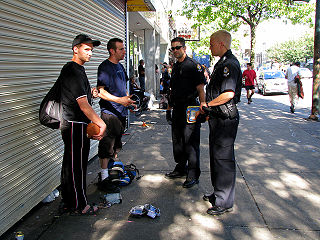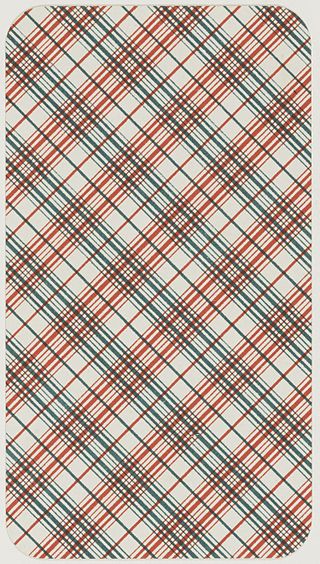Decision
This section appears to contradict the article Phil Ivey . |
The Supreme Court held that Ivey was not entitled to the payment sought from Genting Casinos because he was dishonest.
| Ivey v Genting Casinos | |
|---|---|
| Court | Supreme Court |
| Full case name | Ivey v Genting Casinos (UK) Ltd t/a Crockfords |
| Citation | [2017] UKSC 67 |
| Cases cited | R v Ghosh |
| Court membership | |
| Judges sitting | Lord Neuberger, Lady Hale, Lord Kerr, Lord Hughes, Lord Thomas |
| Keywords | |
| dishonesty | |
Ivey v Genting Casinos (UK) Ltd t/a Crockfords [2017] UKSC 67 is a UK Supreme Court case that reconsidered the test used for determining dishonesty. [1]
Phil Ivey, an American professional poker player, played and won a series of games of Punto Banco—a variant of baccarat—at Crockfords Casino in London, owned by Genting Casinos (UK) Ltd. The casino did not pay out the £7.7m he had won, as they believed Ivey had cheated by using edge sorting. Ivey sued the casino to recover his winnings.
Both Ivey and the casino agreed that the contract contained an implied term forbidding cheating. Ivey's lawyers argued that the appropriate test for whether cheating occurred was the same for contract as it was in section 42 of the Gambling Act 2005, and that cheating necessitated dishonesty, which had not been shown.
At trial, High Court Judge John Mitting held that cheating had occurred and the contract was thus invalid. The Court of Appeal upheld the trial judge's ruling 2–1.
This section appears to contradict the article Phil Ivey . |
The Supreme Court held that Ivey was not entitled to the payment sought from Genting Casinos because he was dishonest.
In the High Court case of DPP v Patterson, Sir Brian Leveson observed that:
Given the terms of the unanimous observations of the Supreme Court expressed by Lord Hughes, who does not shy from asserting that Ghosh does not correctly represent the law, it is difficult to imagine the Court of Appeal preferring Ghosh to Ivey in the future. [2]
The applicability of the Supreme Court's direction in Ivey to criminal law was affirmed by the Court of Appeal (Criminal Division) in R v Booth and Barton. [3] [4]
David Ormerod and Karl Laird criticised the direction of the law following Ivey, arguing that the lack of a subjective element will lead to uncertainty and a possible human rights challenge under Article 7, citing a prior challenge to Ghosh. [5] [6]
In criminal law, mens rea is the mental state of a defendant who is accused of committing a crime. In common law jurisdictions, most crimes require proof both of mens rea and actus reus before the defendant can be found guilty.
Sir John Cyril Smith, born Barnard Castle, County Durham, was an English legal academic. Smith was an authority on English criminal law and the philosophy of criminal liability. Together with Brian Hogan he was the author of Smith & Hogan's Criminal Law, a leading undergraduate text on English criminal law. The textbook is now in its sixteenth edition (2021) and has been used as persuasive authority on crimes prosecuted in the law courts of England and Wales and elsewhere in the common law world. In 1998, Lord Bingham praised Smith; "whom most would gladly hail as the outstanding criminal lawyer of our time." Smith and Hogan's Criminal Law is now edited by Professor David Ormerod QC and Karl Laird.

Phillip Dennis Ivey Jr. is an American professional poker player who has won eleven World Series of Poker bracelets, one World Poker Tour title, and appeared at nine World Poker Tour final tables. Ivey is regarded by numerous poker observers and contemporaries as the best all-around player in the world. In 2017, he was elected to the Poker Hall of Fame.
Dishonesty is acting without honesty. The term describes cheating, deficient probity, lying, deliberate withholding of information, being deliberately deceptive, or showing knavishness, perfidiousness, corruption, treachery, or deficient integrity.
In English criminal law, public nuisance is a act, condition or thing that is illegal because it interferes with the rights of the general public.
In criminal law, a mistake of fact may sometimes mean that, while a person has committed the physical element of an offence, because they were labouring under a mistake of fact, they never formed the mental element. This is unlike a mistake of law, which is not usually a defense; law enforcement may or may not take for granted that individuals know what the law is.

The Theft Act 1978 is an act of the Parliament of the United Kingdom. It supplemented the earlier deception offences contained in sections 15 and 16 of the Theft Act 1968 by reforming some aspects of those offences and adding new provisions. See also the Fraud Act 2006.
In criminal law and in the law of tort, recklessness may be defined as the state of mind where a person deliberately and unjustifiably pursues a course of action while consciously disregarding any risks flowing from such action. Recklessness is less culpable than malice, but is more blameworthy than carelessness.
The doctrine of common purpose, common design, joint enterprise, joint criminal enterprise or parasitic accessory liability is a common law legal doctrine that imputes criminal liability to the participants in a criminal enterprise for all reasonable results from that enterprise. The common purpose doctrine was established in English law, and later adopted in other common-law jurisdictions including Scotland, Ireland, Australia, Trinidad and Tobago, the Solomon Islands, Texas, the International Criminal Court, and the International Criminal Tribunal for the former Yugoslavia.
Duress in English law is a complete common law defence, operating in favour of those who commit crimes because they are forced or compelled to do so by the circumstances, or the threats of another. The doctrine arises not only in criminal law but also in civil law, where it is relevant to contract law and trusts law.

Possession of stolen goods is a crime in which an individual has bought, been given, or acquired stolen goods.
Conspiracy to defraud is an offence under the common law of England and Wales and Northern Ireland.

R v Ghosh [1982] EWCA Crim 2 is an English criminal law case setting out a test for dishonest conduct which was relevant as to many offences worded as doing an act dishonestly, such as deception, as theft, as mainstream types of fraud, and as benefits fraud. The test has been revised to an objective test, with rare exceptions, by the Supreme Court in Ivey v Genting Casinos [2017] UKSC 67.

English criminal law concerns offences, their prevention and the consequences, in England and Wales. Criminal conduct is considered to be a wrong against the whole of a community, rather than just the private individuals affected. The state, in addition to certain international organisations, has responsibility for crime prevention, for bringing the culprits to justice, and for dealing with convicted offenders. The police, the criminal courts and prisons are all publicly funded services, though the main focus of criminal law concerns the role of the courts, how they apply criminal statutes and common law, and why some forms of behaviour are considered criminal. The fundamentals of a crime are a guilty act and a guilty mental state. The traditional view is that moral culpability requires that a defendant should have recognised or intended that they were acting wrongly, although in modern regulation a large number of offences relating to road traffic, environmental damage, financial services and corporations, create strict liability that can be proven simply by the guilty act.
This article concerns appeals against decisions of the Crown Court of England and Wales. The majority of appeals against Crown Court decisions are heard by the Criminal Division of the Court of Appeal.
Obtaining property by deception was formerly a statutory offence in England and Wales and Northern Ireland.
At law, cheating is a specific criminal offence relating to property.
United States v. More, 7 U.S. 159 (1805), was a United States Supreme Court case in which the Court held that it had no jurisdiction to hear appeals from criminal cases in the circuit courts by writs of error. Relying on the Exceptions Clause, More held that Congress's enumerated grants of appellate jurisdiction to the Court operated as an exercise of Congress's power to eliminate all other forms of appellate jurisdiction.

Edge sorting is a technique used in advantage gambling where a player determines whether a face-down playing card is likely to be low or high at casino table games by observing, learning, and exploiting subtle unintentional differences on the backs of the cards being dealt. The technique requires the player to trick the dealer into rotating specific, high-value cards so that they are distinguishable from lower-value ones after shuffling.

Crockfords is a closed casino in London located on Curzon Street. The casino took its name from the former gentlemen's club in London called Crockford's.
{{cite book}}: CS1 maint: location missing publisher (link)